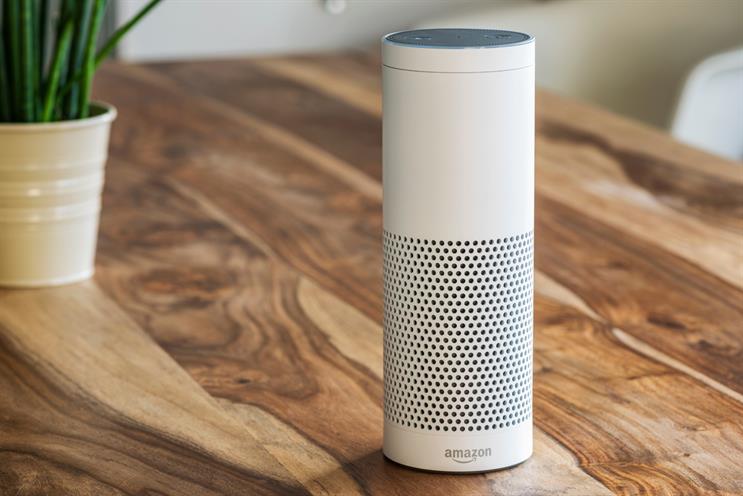Amazon is riding high on its latest set of quarterly results and it could be about to open up yet another revenue channel. At the start of the year, rumours began to circulate that Amazon had started discussions with global brands about opening up the Echo to a paid-for search model. With ad revenues already at $2bn there’s every chance that the behemoth is ready to make a big play in voice search/advertising
The paradox is that voice interactions come at a time when our computer search histories are full of complex long-form queries, but voice can as yet only offer a limited information experience in response. And this sets new challenges for brand owners and marketers looking at voice devices from a transactional perspective.
Understand the new search environment
The first is an end of traditional browsing and discovery, as voice devices will be limited in the number of results they can return. This leads to a "Lock in or Lock out" scenario where brands need to ensure that it is their name that is mentioned by the voice device and not a competitor. Brands will have to work with the interface owners, Amazon and Google, to create this new form of brand lock in - much like they do via search through Google
Their use will vary depending on the product the user is purchasing. For high-end purchases or multi-product orders like groceries, screens will still need to be used so the product can be visually inspected or the basket double-checked before purchase. However, a repeat purchase of a low-cost product could be entirely managed by voice. For example, if a shopper asks for AA batteries the device should know what brand the consumer last purchased and simply buy another set, or suggest a brand based on ad-spend.
As the platform develops, there will be significant opportunities for brands to work with Amazon and Google on their voice offer and the experience of the voice search function. Frankly, voice search needs work right now, despite the millions the interface owners have invested. There’s novelty, but the interfaces are still slow and clunky and don’t always recognise queries. On top of which, no voice response (as yet) offers the same level of functionality as a standard website. There’s no wow factor.
As the technology becomes more commoditised, the ‘wow’ will have to come from somewhere else. And that’s where brands will have a chance to shine. The voice search market is currently crying out for greater sophistication in the delivery of the response experience.Notably, the customer journey is sorely limited if it’s voice only, both in terms of the query and the response.
It all comes down to personality
The proposed move towards sponsored ads via Echo might feel familiar but brands do now need to invest in how they differentiate through voice search. What’s different is they need to create a ‘live-and-breathe’ online experience, asking themselves questions that they would never have needed to do on previous channels.
This goes beyond a brand’s tone of voice in the original sense; they now need to consider how it actually speaks? What’s a brand’s accent? Is it formal and corporate, or chatty and colloquial? Does it tell jokes?
Creating an optimal search experience may currently be about what information you offer and what pictures and videos you show, but it will increasingly become about how it literally talks to customers. And that, more than ever, means having a clear and distinctive brand personality.
There’s already happens to some extent, voice search doesn’t exist in isolation. Brands currently communicate with customers through chatbots, and so people will expect the same immediacy, tone of voice and real-time personality they’re receiving through those channels now.
Creating a wow factor in voice search
Given that many people are currently rather disappointed with their voice search interactions, the first brand to create a genuinely standout experience is going to garner a lot of excitement. And it doesn’t have to be a huge and expensive site redesign – a small moment, done well, will generate the interest and the headlines.
That said, both Amazon and the brands working within the Echo ecosystem should bear in mind that users have had several years of an ad-free experience, so should be careful not to deluge users with advertising from the outset. Paying excessive amounts of money to sponsor regular, intrusive ads or to have your name mentioned each time a person asks Alexa a related question, could have a detrimental effect on how your brand is perceived
With Amazon planning some big moves in paid for search and advertising models, voice search isn’t something brands can neglect any longer. Chief marketing officers have to start thinking about what they’re going to do to create a striking and memorable voice search experience. It’s not just about the look and feel of your logo, but whether your brand needs to talk like Benedict Cumberbatch or Mr Bean.
Rob Curran is head of customer experience at Wunderman UK


